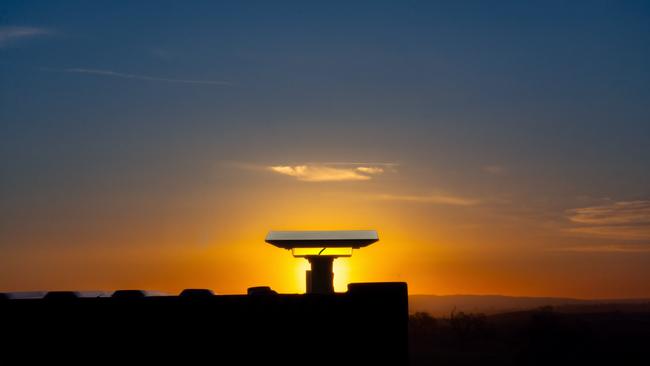Optus takes on enterprise with Elon Musk’s Starlink for business
Optus has signed a deal with Elon Musk to launch enterprise-size internet services in regional Australia as it leaps forward in the race to adopt and sell satellite services.

Optus has signed a deal with Elon Musk to launch enterprise-size internet services in remote Australian towns, having boosted its arsenal in the race to adopt and sell satellite services.
The nation’s second-largest telco is looking to outdo competitors Telstra and TPG as it takes on the most lucrative market, enterprise, onselling Starlink hardware and connectivity for businesses with up to 500 staff.
The telco’s enterprise vice-president Ben Vella said Optus was confident it could nab a number of emergency services and logistics customers by offering speeds comparable to the NBN via the new satellite product.
Optus saw satellite as a strong alternative to fibre given its ability to keep customers connected during high risk weather events including flooding, he said.

“It can, essentially, in some instances, save lives where you can now communicate and co-ordinate better,” he said. “It also offers a brand new opportunity for mobile internet to be connected to a vehicle, and that’s an application that we didn’t have before.”
The telco isn’t just expecting take-up in rural and regional areas but also businesses on the outskirts of cities and mobile businesses, including pop-up stores and construction, which require internet to be moved from site to site.
The new service offers speeds with a latency of less than 99 milliseconds from $7521 per month for vans and other vehicles, while a plan with 50GB of priority data and a peak download speed of 350 megabits per second and an upload speed of 40 megabits per second costs $462 per month.
Mr Vella said Optus believed the new satellite service offered a small glimpse into the future where satellite didn’t replace fibre altogether but became a part of the transmission mix. “It’s about maintaining connectivity where mobile and fixed devices did not exist in the past,” he said. “A blend is the future. We won’t be able to get everything everywhere all at once.”
The new offering will see the company sell Starlink hardware including antennas that can be used on houses, commercial buildings and vehicles, including vans and trucks.
The telco is seeking to become a “one-stop shop”, installing the hardware, connecting businesses and offering priority troubleshooting and help desks.
The venture is Optus’s next big thing following the collapse of the “O-Team”, the telco’s smart home installation business that it abandoned in February.
While satellite services have been around for more than two decades they are increasingly being taken up by consumers looking for internet services in areas fibre doesn’t reach.
Optus owns five satellites in geostationary orbit which are used for broadcast and other government services. It also operates two satellites on behalf of NBN for its Sky Muster service.
Sky Muster is increasingly losing out to the likes of Starlink and major telcos using Starlink and other satellite services.
Opposition communications spokesman David Coleman this month claimed NBN had just 85,000 customers using the service. “The NBN’s also lost about 100,000 customers from existing homes and in the fixed wireless 5G broadband, where everyone basically except the NBN is growing,” he told ABC radio. “They’ve stagnated over the last 12 months and basically haven’t added a single customer.”
Starlink claims well over 200,000 Australians use its satellites for internet services.
Optus’s new business and enterprise deal comes just months after TPG, the nation’s third largest telco, signed a deal with US satellite company Lynk Global to provide “near-100 per cent mobile coverage” across Australia.
That non-exclusive agreement connects standard mobile phones to Lynk’s constellation of low earth orbit satellites, closing coverage gaps in rural and remote parts of the country.
Optus last year became the first telco in Australia to commit to offering direct-to-handset communications via satellites, under a new deal with Elon Musk’s SpaceX in which it plans to provide 100 per cent land coverage.
At the time of launch the telco confidently promised customers would be able to send text messages via satellites by December 2024, with voice and data to be available by December 2025.
In July last year, Telstra also signed an agreement to become the first telco globally to offer rural broadband and voice services with Elon Musk’s satellite provider Starlink.






To join the conversation, please log in. Don't have an account? Register
Join the conversation, you are commenting as Logout